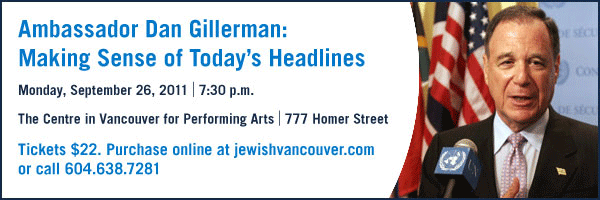This message has 907 words, and will take about 2-3 minutes to read.
Attacks on Israel Escalate Tensions
The past two days have seen a series of significant terrorist attacks on Israeli civilian populations that threaten an escalation of tensions and violence in the region. On Thursday, a coordinated set of attacks near Eilat led to the deaths of eight Israelis and another 31 were wounded. After Israel’s response resulted in the death of a high-ranking Hamas commander, an extensive series of rocket attacks from Gaza hit Ashdod, Beersheva, Kiryat Malachi and other targets throughout Israel’s southern region. These have included longer range Grad missiles, and have resulted in injuries and serious damage.
Thursday’s attacks reflect a new reality vis-à-vis the Egyptian border. It is no longer a quiet border, and Israel cannot rely on Egyptian authorities or forces to prevent attacks. What we are seeing here are Gaza-based terrorists crossing into Egypt, and then across the border into Israel to launch attacks in an area that had previously been quiet. Given the political uncertainty around Egypt’s situation, there will be no quick solution to this new dynamic.
In the wake of the attacks the Canadian government immediately recognized Israel’s right to protect its citizens through whatever means necessary. Notably, the opposition parties are not deviating from this perspective, reflecting a broad Canadian consensus on the threats facing Israel.
Unilateral Declaration of Independence
This week’s violent attacks come within the context of an intensive focus in recent months about the coming UN General Assembly. The Palestinian leadership continues to debate moving forward with a unilateral declaration of independence and seeking recognition by the UN. The initiative has sparked a complicated dance between Israeli and Palestinian leaders, involving the United States, European countries and more.
The Canadian and U.S. governments have been clear in their opposition to such a unilateral move on the Palestinians’ part, and have focused on trying to get the two parties back into direct negotiations. Many European governments have voiced similar perspectives, giving the Palestinians pause over the potential success of the initiative. There is much concern that such a unilateral move will result in a new eruption of violence; this week we seem to see that already playing out.
North American Jewish communities have launched a petition drive encouraging UN member states to vote against a unilateral declaration of independence and instead to encourage the parties to reengage in direct negotiations. You can access the petition here; add your signature, and forward it to your friends and colleagues. To read The Centre for Israel & Jewish Affairs' (CIJA) statement, click here.
Dan Gillerman, former Israeli ambassador to the UN, will be here in Vancouver on September 26th for the Federation Annual Campaign Opening Night. Amb. Gillerman was a strong and effective representative for Israel, and his appearance only days after the UN General Assembly begins, will provide our community a timely analysis of how the issues are unfolding. For more information or to purchase your tickets, click here.
Night of Murdered Poets Commemorated in New York
When I started my career, my first assignment at the Cleveland Jewish Federation was managing advocacy efforts on behalf of Soviet Jewry, then still imprisoned behind the Iron Curtain. At that time nearly 30 years ago, I learned about the Night of Murdered Poets. On August 12, 1952 a group of 13 leading Jewish cultural figures were executed for charges of espionage, treason, and lack of Soviet spirit. The trials leading up to their convictions were all shams. The group included leading Yiddish writers Peretz Markish, Itzik Fefer and David Bergelson, which is why the moniker of Night of Murdered Poets was coined. However, the group also included actors, scientists and other leading intellectual figures. The Night of Murdered Poets was, in many ways, a watershed moment in which it became clear, beyond all doubt, that Jewish life was under deliberate, severe and relentless attack by the Soviet regime.
Two current leading Yiddish writers, Boris Sandler and Professor Gennady Estraikh, have compiled a lexicon of Yiddish writers from the Soviet era, drawn from notes recorded by Chaim Baider's 20 years of research. Their new lexicon, The Biographical Dictionary of Yiddish Writers in the Soviet Union, includes the biographies of over four hundred writers. This lexicon lists dates of birth and death (when known), titles and descriptions of works, and occasionally a photo. A cultural legacy that could have perished completely under Stalin’s repressive regime has painstakingly been documented for the future.
For more information about this click here.
Parashat Eikev
In this week’s parasha Moses focuses on the relationship between God and the people of Israel. His narration focuses both on the high and low points of the relationship. In Deuteronomy 9:6 he notes how “you are a stiff-necked people”. Many commentators both within and beyond the Jewish world see this a negative characteristic, but some note that the stubbornness of our people is what has enabled us to survive through centuries of attacks and persecutions.
Without wanting to be overly chauvinistic about the character of the Jewish people, I think there is something to that last perspective. With all of our challenges, the fact that we have survived, that we still protect ourselves and care for one another, that we insist on passing along our traditions and values to the next generation is extraordinary. In a few weeks we will begin in earnest our 2011 Federation Annual Campaign, our community’s single biggest manifestation of our collective stubbornness – our insistence on defying the odds and maintaining and strengthening ourselves as a community into the future.
Shabbat Shalom!
|

